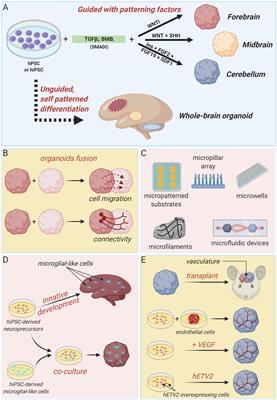The rover will spend months exploring the Gediz Vallis channel, which could contain clues to the history of liquid water on Mars.




In the burgeoning field of AI and cybernetics, we stand at the cusp of a paradigm shift—a reimagining of the foundational principles that underpin our understanding of reality itself. This article delves into the tenets of the Cybernetic Theory, of Mind (CTM), a model that amalgamates the rigor of science with the vast potentialities of consciousness (observer-dependence, causality, teleology, phenomenality), offering a novel lens through which to view the mechanisms of mind and matter. As we explore these principles, we uncover a framework that transcends traditional boundaries, positioning consciousness as the bedrock of existence and viewing the universe not merely as a collection of separate entities but as an interconnected web of information processing and exchange. This new ontological model invites us to reconsider not just the nature of human thought and machine intelligence but also the very essence of what it means to be, heralding an era where the cybernetic fusion of technology and human mind shapes our future.
The neurosurgeon Sergio Canavero announced in 2015 that he could soon be capable of performing the world’s first human head transplant procedure. This would mean that it would be possible to remove someone’s head, and graft it onto the neck and shoulders of another person. As of yet, this has only been performed on cadavers and not on living humans.
But suppose you want to keep the face that you’ve already got? Or have grown tired of the body you inhabit? Could it ever be possible to switch brains between bodies instead?
Emma Stone recently won her second Oscar for her performance in the brilliantly surreal comedy Poor Things. In the film, Stone’s character, Bella Baxter, receives a brain transplant from her surviving unborn child after killing herself. The surgery is performed by experimental scientist Dr Godwin Baxter (played by Willem Dafoe).


Neurodevelopmental disorders (NDDs) are a group of disorders in which the development of the central nervous system (CNS) is disturbed, resulting in different neurological and neuropsychiatric features, such as impaired motor function, learning, language or non-verbal communication. Frequent comorbidities include epilepsy and movement disorders. Advances in DNA sequencing technologies revealed identifiable genetic causes in an increasingly large proportion of NDDs, highlighting the need of experimental approaches to investigate the defective genes and the molecular pathways implicated in abnormal brain development. However, targeted approaches to investigate specific molecular defects and their implications in human brain dysfunction are prevented by limited access to patient-derived brain tissues. In this context, advances of both stem cell technologies and genome editing strategies during the last decade led to the generation of three-dimensional (3D) in vitro-models of cerebral organoids, holding the potential to recapitulate precise stages of human brain development with the aim of personalized diagnostic and therapeutic approaches. Recent progresses allowed to generate 3D-structures of both neuronal and non-neuronal cell types and develop either whole-brain or region-specific cerebral organoids in order to investigate in vitro key brain developmental processes, such as neuronal cell morphogenesis, migration and connectivity. In this review, we summarized emerging methodological approaches in the field of brain organoid technologies and their application to dissect disease mechanisms underlying an array of pediatric brain developmental disorders, with a particular focus on autism spectrum disorders (ASDs) and epileptic encephalopathies.
Neurodevelopmental disorders (NDDs) encompass a range of frequently co-existing conditions that include intellectual disability (ID), developmental delay (DD), and autism spectrum disorders (ASDs) (Heyne et al., 2018; Salpietro et al., 2019). ASDs represent a complex set of behaviorally defined phenotypes, characterized by impairments in social interaction, communication and restricted or stereotyped behaviors (Chen et al., 2018). Epilepsy and NDDs frequently occur together, and when refractory seizures are accompanied by cognitive slowing or regression, patients are considered to have an epileptic encephalopathy (EE) (Scheffer et al., 2017). Both ID and ASDs are clinically and etiologically heterogeneous and a unifying pathophysiology has not yet been identified for either the disorder as a whole or its core behavioral components (Myers et al., 2020). Family and twin studies suggest high (0.65–0.91) heritability (Chen et al.

Whereas traditional colonoscopy involves snaking a camera called a colonoscope through your colon and rectum, a CT colonography, or virtual colonoscopy, consists of X-rays and a computer creating 3D images of these organs.
If you’re between the ages of 45 and 85, you should have a colorectal cancer screening routine in place, per the American Cancer Society (ACS). But a colonoscopy —in which your doctor uses a special camera to look inside your colon and rectum in search of abnormal growths called polyps —isn’t the only option to take charge of your gastrointestinal health.
You can choose from noninvasive screening methods: computed tomography (CT) colonography and/or a stool-based test. Billionaire entrepreneur and Shark Tank investor Mark Cuban tells Fortune he enjoys the relatively low cost and simplicity of the former, also called virtual colonoscopy. In short, it’s an X-ray exam that doesn’t require sedation or anesthesia.

Learn about Corning Willow Glass, an ultra-thin, conformable, flexible glass fusion-formed for an incredibly smooth, flat surface, virtually free of defects.
Year 2023 face_with_colon_three
The new manufacturing method deals with the packaging substrate, the material to which chip dies are bonded. Intel and others have long used plastic (also known as organic) substrates, but the material can shrink or warp during the chip-making process, leading to defects.
Intel notes the warping risk grows as more silicon is placed on the substrate. “As the demand for data-centric, AI-centric compute increases, we are seeing an increasing amount of silicon being packed onto the package substrate, which organic packages have come to some kind of limitation in terms of handling it,” Manepalli added.
The company found a solution in glass, a homogenous substance that can remain rigid under a higher chip load. “Compared to today’s organic substrates, glass offers distinctive properties such as ultra-low flatness and better thermal and mechanical stability, resulting in much higher interconnect density in a substrate,” Intel said in its announcement.